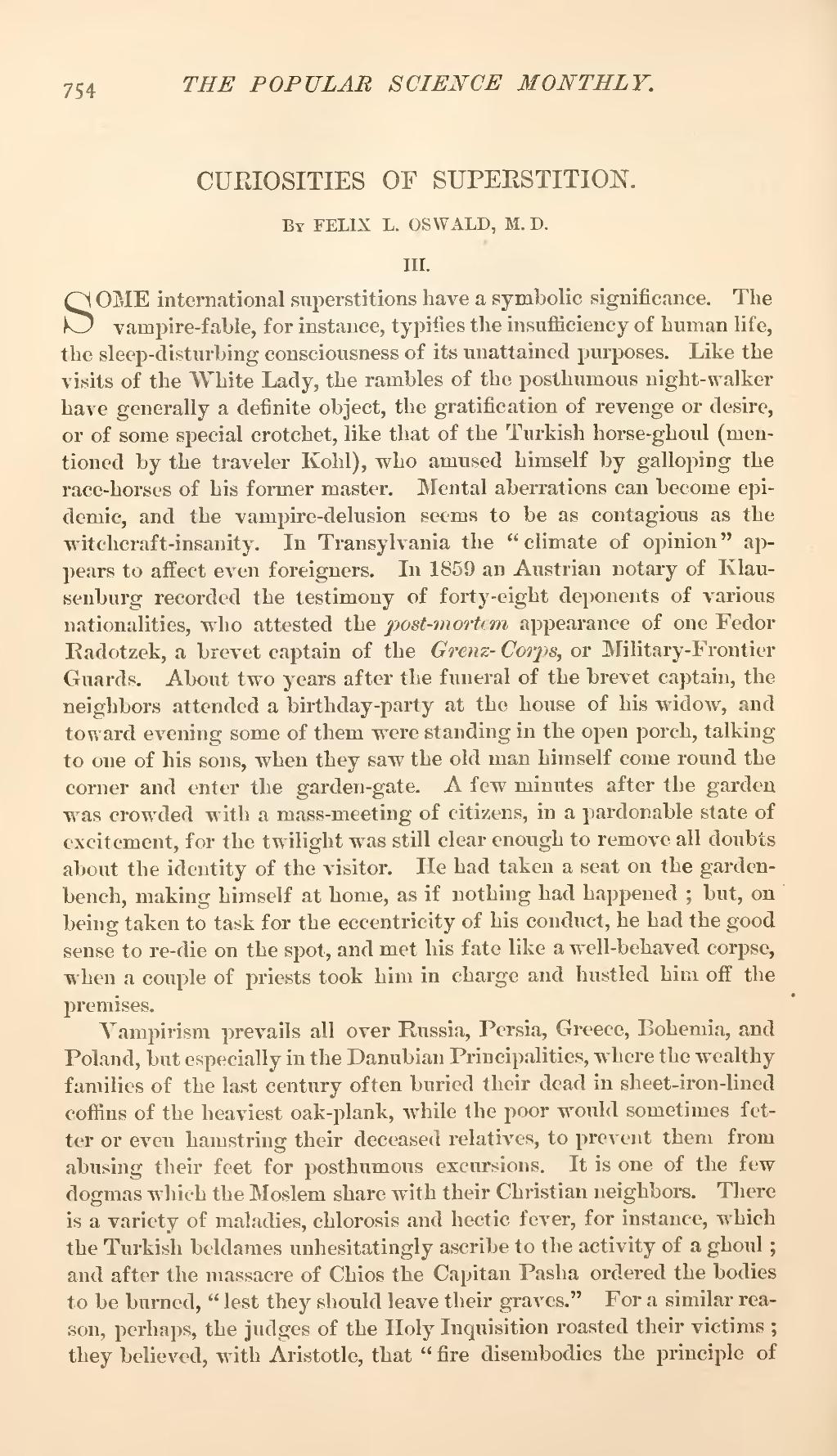| CURIOSITIES OF SUPERSTITION. |
By FELIX L. OSWALD, M. D.
III.
SOME international superstitions have a symbolic significance. The vampire-fable, for instance, typifies the insufficiency of human life, the sleep-disturbing consciousness of its unattained purposes. Like the visits of the White Lady, the rambles of the posthumous night-walker have generally a definite object, the gratification of revenge or desire, or of some special crotchet, like that of the Turkish horse-ghoul (mentioned by the traveler Kohl), who amused himself by galloping the race-horses of his former master. Mental aberrations can become epidemic, and the vampire-delusion seems to be as contagious as the witchcraft-insanity. In Transylvania the "climate of opinion" appears to affect even foreigners. In 1859 an Austrian notary of Klausenburg recorded the testimony of forty-eight deponents of various nationalities, who attested the post-mortem appearance of one Fedor Radotzek, a brevet captain of the Grenz-Corps, or Military-Frontier Guards. About two years after the funeral of the brevet captain, the neighbors attended a birthday-party at the house of his widow, and toward evening some of them were standing in the open porch, talking to one of his sons, when they saw the old man himself come round the corner and enter the garden-gate. A few minutes after the garden was crowded with a mass-meeting of citizens, in a pardonable state of excitement, for the twilight was still clear enough to remove all doubts about the identity of the visitor. He had taken a seat on the garden-bench, making himself at home, as if nothing had happened; but, on being taken to task for the eccentricity of his conduct, he had the good sense to re-die on the spot, and met his fate like a well-behaved corpse, when a couple of priests took him in charge and hustled him off the premises.
Vampirism prevails all over Russia, Persia, Greece, Bohemia, and Poland, but especially in the Danubian Principalities, where the wealthy families of the last century often buried their dead in sheet-iron-lined coffins of the heaviest oak-plank, while the poor would sometimes fetter or even hamstring their deceased relatives, to prevent them from abusing their feet for posthumous excursions. It is one of the few dogmas which the Moslem share with their Christian neighbors. There is a variety of maladies, chlorosis and hectic fever, for instance, which the Turkish beldames unhesitatingly ascribe to the activity of a ghoul; and after the massacre of Chios the Capitan Pasha ordered the bodies to be burned, "lest they should leave their graves." For a similar reason, perhaps, the judges of the Holy Inquisition roasted their victims; they believed, with Aristotle, that "fire disembodies the principle of
